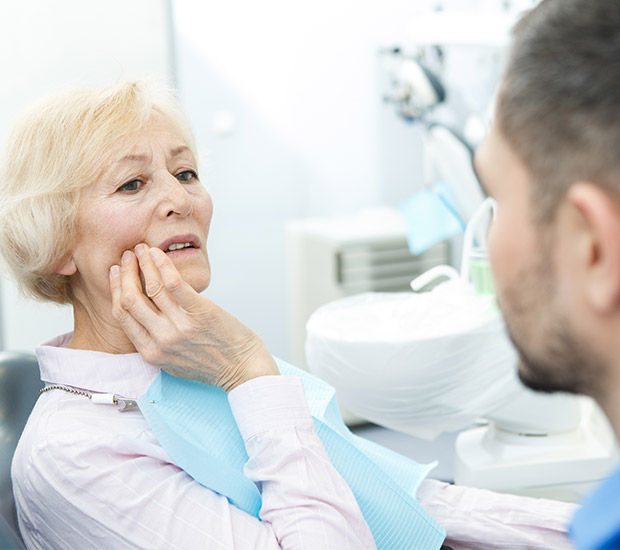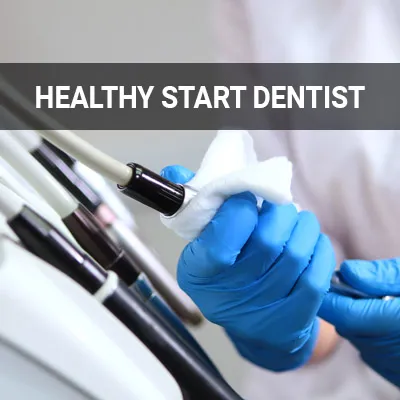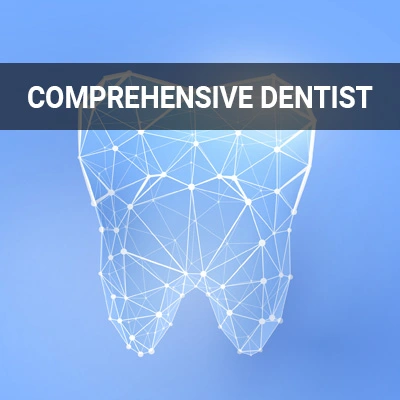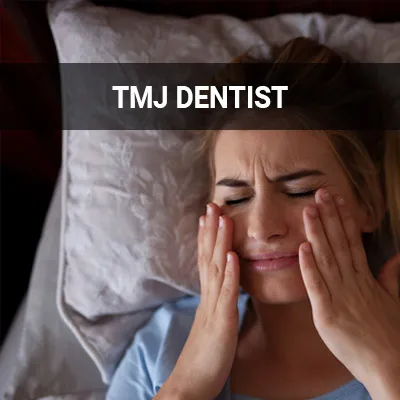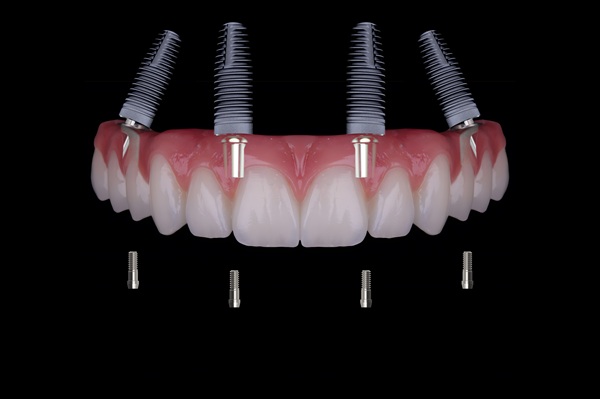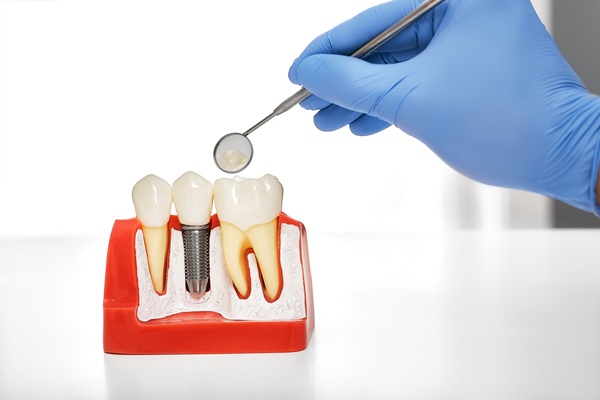Seeing a Complete Health Dentist for TMJ New York, NY
A complete health dentist can treat disorders of the temporomandibular joint (TMJ) by examining your overall health concerning TMJ symptoms through the lens of total health dentistry. TMJ disorders relate to conditions affecting the muscles of your head and neck or the jaw itself. TMJ treatments are available at M.Y. Dental Spa in New York and the surrounding area. We guide you and your family through total health dentistry.
Our team offers a range of services, including procedures used to treat TMJ. Call us at (212) 786-5757 to learn more.
Benefits of Complete Health Dentistry
Selecting a complete health dentist to treat TMJ disorders is important because TMJ is associated with many other health conditions. Complete or total health dentistry offers a comprehensive, multi-disciplinary approach to dental care as it considers how oral health affects a person's overall health. Oral hygiene influences digestive health, immune health, metabolism, mental health, and more.
Total health dentistry offers a strategy for preventative health. Complete health dentists are trained to recognize signs linked to other systemic conditions—before they get worse. Rather than treating isolated symptoms, complete health dentists identify the root causes and seek appropriate interventions that benefit a person's overall health.
“Complete health dentists are trained to recognize signs linked to other systemic conditions—before they get worse.”
Understanding TMJ Disorders
Temporomandibular joint disorders—also referred to as TMJ, TMJ disorders, TMJD, or TMD—typically arise from injury or damage to the temporomandibular joint that connects the jawbone to the skull. These joints effectively work as hinges to enable jaw movement. Joint damage may occur over time due to a degenerative condition like arthritis or can happen when someone chronically clenches or grinds one's teeth. Often, the exact cause of TMJ is unknown.
TMJ makes patients especially sensitive to pain, and some experts believe TMJ is associated with problems of the sensory nervous system. Evaluating whether pain stems from TMJ dysfunction alone or is a symptom of an overarching systemic condition may be vital to effective treatment—this is why a consultation with a TMJ dentist is critical.
“TMJ makes patients especially sensitive to pain.”
Recognizing the Signs of TMJ
TMJ disorders can cause severe pain and discomfort, which may either be temporary or last years. This may affect either one or both sides of the face. It affects women more commonly than men, and it shows up most frequently in patients between the ages of 20 and 40. Common symptoms of TMJ include:
- A bite that suddenly feels uncomfortable
- Feeling “tired” in the face
- Jaws getting “stuck” or “locked” in the open- or closed-mouth position
- Pain or tenderness in or around the ear when chewing, speaking, or opening the mouth wide
- Pain or tenderness in the face, jaw joint area, neck, and shoulders
- Problems opening the mouth wide
- Swelling on the side of the face
- Trouble chewing
Many of these symptoms overlap with other conditions, making proper diagnosis critical. A complete health dentist will conduct a physical exam and ask the patient about their health history to rule out (or identify) any other health issues the patient may have. They will also check the jaw, bite, and facial muscles for functionality. Full-face X-rays, MRIs, or CT scans may also be necessary, depending on the severity of the patient's condition.
“A complete health dentist will conduct a physical exam and ask the patient about their health history to rule out (or identify) any other health issues the patient may have.”
Check out what others are saying about our dental services on Yelp: Seeing a Complete Health Dentist for TMJ in New York, NY
Other Health Issues Affected by TMJ
TMJ is associated with several other conditions, including arthritis, scoliosis, and periodontal disease. For example, some orofacial symptoms (pain, inflammation, functional limitations) associated with TMJ disorders may stem from arthritis. A restricted range of motion may be related to scoliosis as it causes asymmetries of the head, neck, and shoulder. Periodontal disease may result from TMJ as unilateral chewing from chronic periodontitis causes structural changes to the temporomandibular joint.
Concomitant health issues remain critical to recognize because they can influence the approach to treatment. A complete health dentist looks for underlying issues associated with TMJ as treating related conditions can improve TMJ symptoms. Taking into account a person's complete health profile helps primary care and dental providers coordinate a custom treatment plan tailored to improve overall health.
“A complete health dentist looks for underlying issues associated with TMJ as treating related conditions has the potential to improve TMJ symptoms.”
Questions Answered on This Page
Q. Why should someone see a complete health dentist for TMJ?
Q. What is TMJ?
Q. How is TMJ related to other health issues?
People Also Ask
Q. How can a dentist help with TMJ?
Q. What is the difference between traditional dentists and total health dentists?
Q. What should a home oral care routine include?
Q. Why is it important to find the right general dentist?
Q. What are some conditions that a complete health dentist can diagnose?
Q. What are the benefits of having a complete health dentist as a dental provider?
Treating TMJ
TMJ symptoms sometimes go away without treatment. However, if symptoms persist, patients may need to seek medical treatment. A complete health dentist can identify the symptoms' root cause and devise a customized treatment plan tailor-made for the patient's unique and individual needs. If over-the-counter pain medication does not relieve a patient's discomfort, a dentist may prescribe more potent pain relievers and anti-inflammatories on an as-needed basis.
Oral appliances, such as splints or mouth guards, may also help, as those with jaw pain often benefit from wearing a soft or firm device over their teeth. Certain jaw exercises may assist in stretching and strengthening the jaw muscles. Physical therapy for jaw pain may include ultrasound, moist heat, and ice. Surgery may be necessary if these treatments are insufficient. Such procedures include arthrocentesis, TMJ arthroscopy, modified condylotomy, and open-joint surgery. Some patients also benefit from corticosteroid injections.
Frequently Asked Questions
Q. What is total health dentistry?
A. Total health dentistry is a more comprehensive approach to primary care dental services. A total health dentist has a deeper understanding of the oral-systemic link. Total or complete health dentistry considers a person's overall health and how it influences oral health and vice versa.
Q. What is TMJ?
A. TMJ is short for temporomandibular joint disorders (also called TMD or TMJD). TMJ disorders get characterized by jaw pain or dysfunction affecting the joints where your jawbone connects to your skull. TMJ may be due to stress, degenerative conditions, or injury to your jaw.
Signs of TMJ include:
Q. What health conditions get associated with TMJ?
A. TMJ disorders are commonly associated with other health conditions, including arthritis, scoliosis, and periodontal disease. Many patients report being especially sensitive to pain. For this reason, some experts believe TMJ may also be related to sensory nervous system disorders.
Q. How do you treat TMJ?
A. Since TMJ disorders are often related to other health problems, a complete health dentist or TMJ dentist needs to diagnose TMJ and evaluate any underlying conditions. Effectively treating TMJ usually requires also treating the underlying health issue. Treatments include pain relievers, anti-inflammatory medications, steroid injections, and physical therapy approaches to relieving pain and strengthening jaw muscles. Oral appliances may correct TMJ, and in severe cases, surgery may be indicated.
Q. What can someone do at home to improve their TMJ symptoms?
A. There are steps a person can take on their own to help lessen the symptoms of TMJ. These include sticking to soft foods, taking notice of bad habits such as teeth grinding, and properly exercising the jaw. Your complete health dentist can recommend the appropriate jaw exercises to help you relieve your TMJ symptoms.
Dental Terminology
Call Us Today
When choosing a primary dental care provider, you want to make sure that they can cover all the bases — including treating your TMJ. Our complete health dentist at M.Y. Dental Spa may be able to help. Call us today at 212-786-5757 to schedule an appointment or to learn more about our services.
Helpful Related Links
- American Dental Association (ADA). Glossary of Dental Clinical Terms. 2025
About our business, license, and website security
- M.Y. Dental Spa was established in 2003.
- We accept the following payment methods: American Express, Cash, Check, Discover, MasterCard, and Visa
- We serve patients from the following counties: New York County
- We serve patients from the following cities: New York, Manhattan, Midtown Manhattan, Upper West Side, and Harlem
- NY (License #46258). View License Information and Specifics
- National Provider Identifier Database (1629287347). View NPI Registry Information
- Healthgrades. View Background Information and Reviews
- Norton Safe Web. View Details
- Trend Micro Site Safety Center. View Details
Back to top of Seeing a Complete Health Dentist for TMJ
